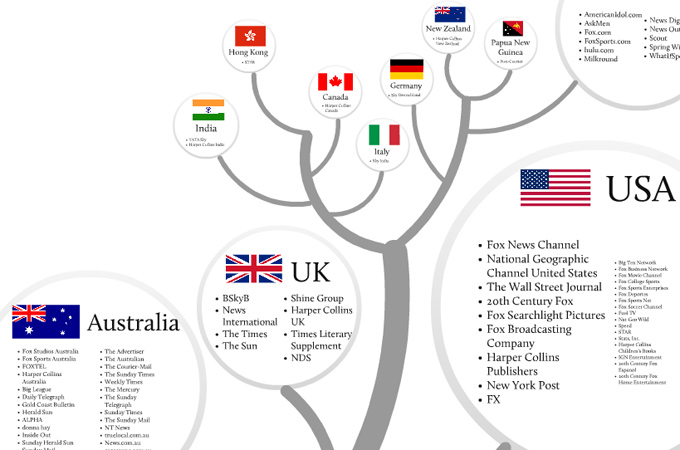- media concentration/congolmerates/globalisation (in terms of media ownership)
a single corporation owning multiple worldwide companies
- vertical integration & horizontal integration
vertical integration – when a media company owns all of the steps of production, eg, the distribution, production etc
horizontal integration –
- gatekeepers
a group of people who force others through a set of their own concrete rules
- regulation/deregulation
regulation – every area of a corporation is overseen by the government to ensure they are following the law
deregulation – a lack of regulation from the government allowing corporations to break laws without consequence
murdoch media empire



he distinctive organisational form of the cultural industries has considerable implications for the conditions under which symbolic creativity is carried out’ – david hesmondhalgh
those organisations have an impact on how people work
there must be serious concerns about the extent to which this business-driven, economic agenda is compatible with the quality of working life and of human well-being in the creative industries.
the individualising discourses of ‘talent’ and ‘celebrity’ and the promise of future fame or consecration, have special purchase in creative work, and are often instrumental in ensuring compliance with the sometimes invidious demands of managers, organisations and the industry (Banks & Hesmondhalgh, p. 420).
media ownership and structure
- Murdoch Dynasty
- monopolies: media conglomerates
- corporations may purchase overseas companies (horizontal integration) in order to ensure a spread of ideology
- this can be related to chomsky (manufacturing consent)/cultivation theory. Different media forms are bought as a monopoly by the same conglomerate which allows the media conglomerate to spread its ideas onto working class citizens
- althusser with the ruling class using ideological state apparatus (through media conglomerates) to enforce ideologies and as a result identity of the working class
